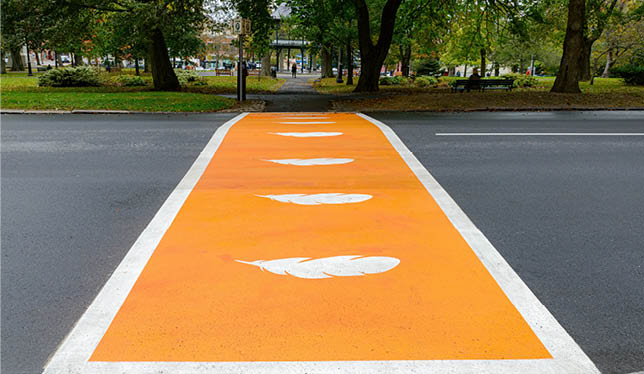Helping grad students map out their futures
"Each map features in its centerfold a visual timeline that suggests strategies for staying on track."

Given the range of career options available to graduate students – both the academic and the “alt-ac” routes – it’s no surprise that some struggle to find direction. While the pathways to academic careers are relatively well lit, graduate students often lack awareness of other career options. They may also need support to translate and market their skills and experience, as well as to identify job-hunting strategies that can connect them to various labour sectors. This is crucial in light of the fact that more than 60 percent of employed PhD graduates work in business, government and non-profit jobs (although this number varies by discipline and school). Presenting information that relates to both academic and other options can help students make informed decisions and plans.
There are many exciting initiatives underway across Canada as graduate education evolves and educators strive to support students in their academic and professional development. One such project is the Queen’s University Grad Maps, launched in the fall of 2016 as a partnership between the school of graduate studies and career services.
Maps specific to each program of study have been created for students at the master’s and PhD levels, delivering customized advice, resources and strategies. Students are encouraged to consult the maps throughout their program to explore and plan their careers. Each map is a large program brochure that features in its centerfold a timeline with strategies for staying on track with studies, maximizing research or learning impact, gaining relevant experience, building networks and getting ready for life after graduation. The brochures list program information, career options and job skills tied to each degree program. This helps to promote a well-rounded learning experience through timely and informed planning, and better program selection decisions that contribute to successful career outcomes.
The grad maps are valuable in part for their utility across the stages of graduate education. Recruitment and admissions staff can use the maps to help prospective students browse programs for a more holistic sense of the graduate experience, the skills acquired with specific degrees and potential career options. Current students can use them to stay on track with their studies, and for ideas on personal and professional development through extracurricular and experiential opportunities. Graduating students can refer to the maps to help articulate their skills to potential employers.
The design of the Queen’s Grad Maps was based on the university’s Major Maps career resource for undergraduate students. The Major Maps, created in 2015, feature a map for each of the 44 undergraduate programs at Queen’s and include advice on academics and careers. During their first year, the Major Maps received over 60,000 hits online, far outpacing our initial expectations. In a recent survey, 88 percent of respondents said they felt more confident in making informed career decisions after looking at a Major Map. The Grad Maps build on this success but are tailored to grad students, with their focus on research and scholarship, and reflect the complexity of career decisions.
The initial research and drafting of the Grad Maps was done by students, with feedback and input from the academic departments. This research was then put into a graphic, easy-to-read format. In the first two months, the maps were distributed to more than 3,500 students and received over 2,000 hits on the website, again exceeding our expectation.
An important aspect of the Grad Maps is the plan to embed them more directly into the student experience. To support students in taking ownership of planning, the university has developed a blank version called My Grad Map that students can use to write down their goals, document their achievements and track their progress. Faculty and advisers are encouraged to work with students on the maps and to help guide the conversation.
The Queen’s Grad Maps and My Grad Map have also been embedded in a new Design Your Life workshop that incorporates the concept of design thinking into the career-planning process in order to promote creativity and expand participants’ ideas of what is possible. The first of these workshops was offered this past fall to positive feedback – 100 percent of attendees said they would recommend the workshops to a friend. Moving forward, along with annual revisions to these resources to ensure up-to-date content, Queen’s will explore new ways to integrate the maps into existing programming.
Miguel Hahn is the Grad Maps project coordinator and a career counsellor at Queen’s University. Rebecca Hügler is the coordinator for communications and postdoctoral training for the school of graduate studies at Queen’s.
Featured Jobs
- Veterinary Medicine - Faculty Position (Large Animal Internal Medicine) University of Saskatchewan
- Education - (2) Assistant or Associate Professors, Teaching Scholars (Educational Leadership)Western University
- Business – Lecturer or Assistant Professor, 2-year term (Strategic Management) McMaster University
- Psychology - Assistant Professor (Speech-Language Pathology)University of Victoria
- Canada Excellence Research Chair in Computational Social Science, AI, and Democracy (Associate or Full Professor)McGill University















Post a comment
University Affairs moderates all comments according to the following guidelines. If approved, comments generally appear within one business day. We may republish particularly insightful remarks in our print edition or elsewhere.